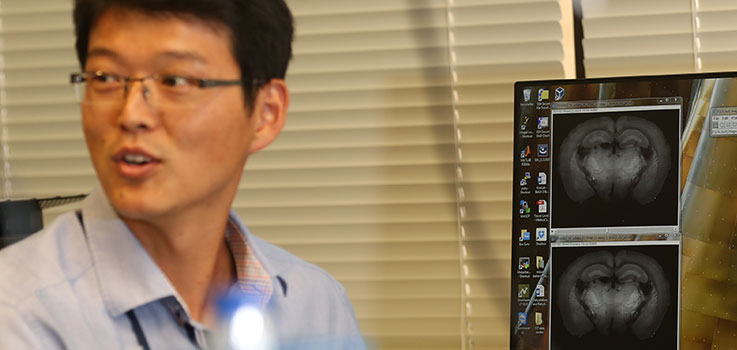Neuroscience PhD Program Leadership

Welcome
Welcome, and thank you for your interest in the Penn State University interdepartmental Neuroscience Graduate Program.
I hope you take the time to look through these pages and gain an appreciation of the many opportunities available to our students.
We provide a rigorous curriculum that combines broad survey core courses in the first semester with detailed courses on cell, molecular and systems neuroscience, and neuroanatomy. As well as didactic lectures, these courses emphasize critical thinking and students are expected to read original papers and to present their concepts and methods to the class.
In addition to our subject courses, we offer a range of ancillary courses that provide each student with the skills to attain leadership positions in their later careers. Among these is a professional development course that helps students create an individual development plan that is updated throughout their student career.
The PSU Neuroscience Program offers access to the laboratories of more than 35 faculty members from 10 basic science and clinical departments throughout Penn State College of Medicine and Penn State Health Milton S. Hershey Medical Center.
Basic science studies being carried out by these faculty members range from detailed molecular studies of neural genes, through electrophysiological properties of specific neuronal cells and circuits to studies of normal and addictive behaviors. Many of our program faculty are also involved in clinical and basic studies of a wide variety of neurological diseases and in translational studies aimed at developing novel diagnostics and therapies.
Please browse through our faculty directory to learn more.
Research and education at Penn State College of Medicine are enjoying a dramatic expansion of infrastructure and personnel. New core resources in imaging and genomics have made state-of-the-art equipment available to everyone in the College.
Understanding how the nervous system is assembled, how it works normally and what goes wrong in the wide array of neurological and psychiatric diseases remains one of the greatest challenges in biomedical sciences. Recent advances have placed an impressive array of new tools for us to investigate the nervous system from the molecular to the systems level. Now is the perfect time to consider entering the field of neuroscience and playing a full role in advancing this exciting field.
